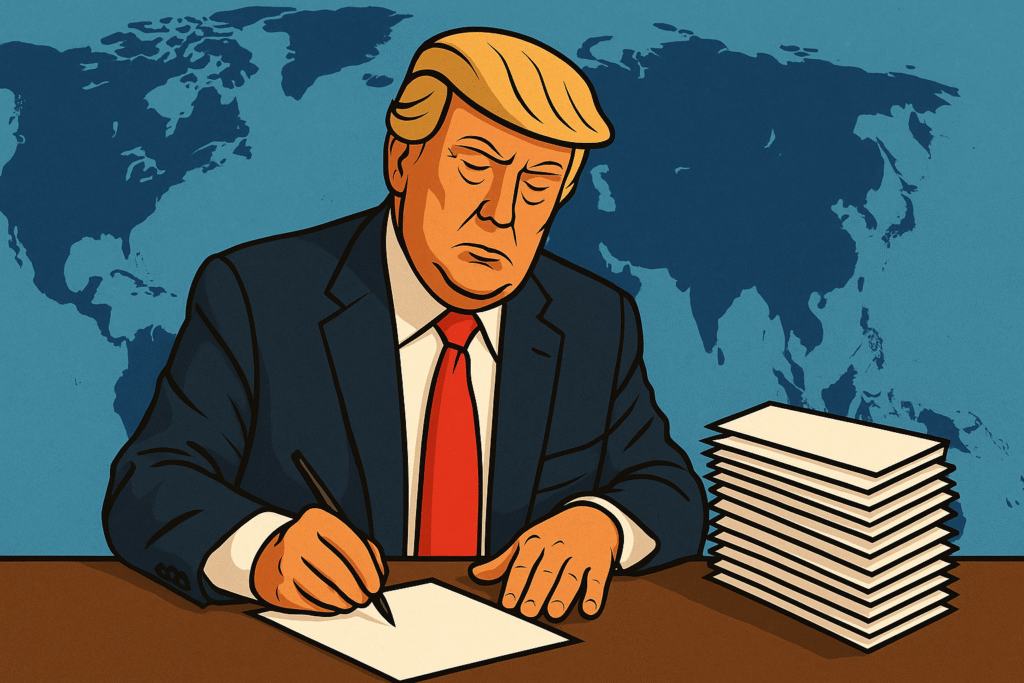President Donald Trump has announced a new approach to international trade policy: issuing daily letters to foreign governments dictating the tariffs they must pay to export goods to the United States. Trump said he plans to send up to 10 letters per day beginning July 4, eliminating the need for negotiating complex bilateral or multilateral trade agreements.
“My inclination is to send a letter out saying what tariff they’re going to be paying,” Trump said on July 3. “It’s just much easier.”
This marks a significant shift in U.S. trade strategy. Rather than engaging in lengthy and often complicated negotiations with hundreds of countries, Trump proposes implementing flat-rate tariffs — ranging between 10% and 30%, depending on each country’s trade relationship with the United States.
Deadline Looms for Reimposing Global Tariffs
The announcement comes as a July 9 deadline approaches, signaling the possible reimposition of broad tariffs that were initially announced in April. Those tariffs, which spooked global financial markets, were delayed by 90 days for most countries. In the meantime, Trump has secured bilateral trade deals with Vietnam and the United Kingdom, and is reportedly close to finalizing a framework agreement with China.
Despite this progress, Trump signaled he has no intention of extending the tariff deadline, emphasizing that negotiating individual agreements with over 170 countries is impractical.
“How many deals can you make?” he asked rhetorically. “You can make more deals, but they’re very much more complicated.”
Shift Toward Flat Tariff System
Trump criticized the current system, where trade deals often involve negotiating over specific goods like beef or ethanol, and instead called for simplicity and control. He suggested a uniform tariff structure for each country based on the U.S. trade deficit and strategic interests.
“I’d rather just do a simple deal where you can maintain and control it,” he said.
Under this new policy, countries will be informed via formal letters outlining the tariff rate required to sell their products in the U.S. market. Trump argued this method would streamline trade enforcement and give the U.S. more leverage in protecting domestic industries.
Tensions with Key Partners
The unilateral approach is likely to escalate tensions with key trade partners such as Canada, Mexico, and the European Union, who remain in ongoing trade disputes with the U.S. and are wary of bypassing conventional negotiation frameworks.
Critics argue that such a tactic could provoke retaliatory tariffs and trade wars, while Trump supporters view it as a bold reassertion of American sovereignty in global trade.
Conclusion
As Trump accelerates his “America First” trade agenda, his plan to personally dictate tariffs via daily letters marks a dramatic shift in U.S. economic diplomacy. While the approach promises simplicity and control, it also raises concerns about transparency, global market reactions, and long-term diplomatic consequences. The first batch of tariff letters is expected to be delivered starting Independence Day, July 4, 2025.



